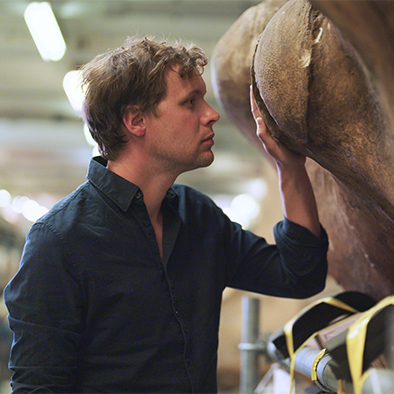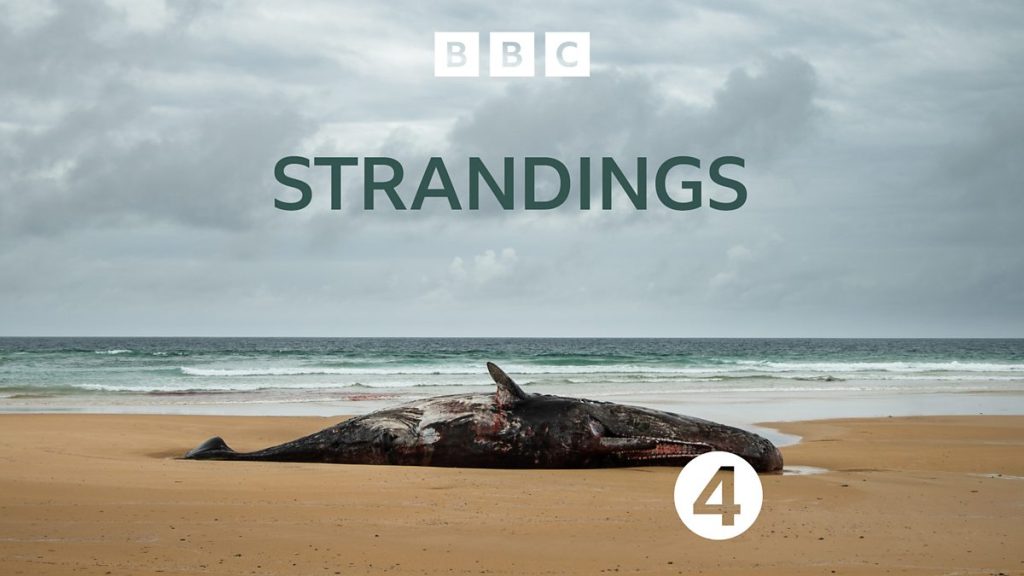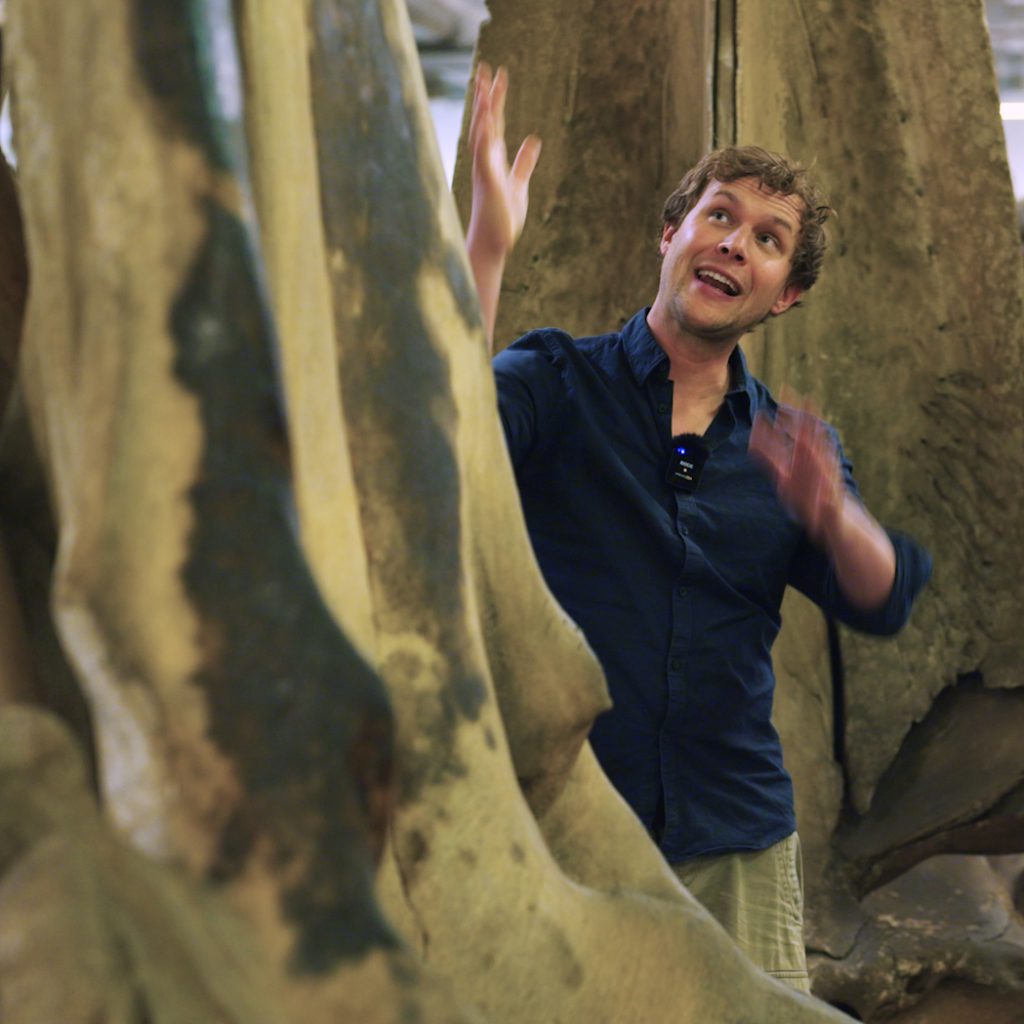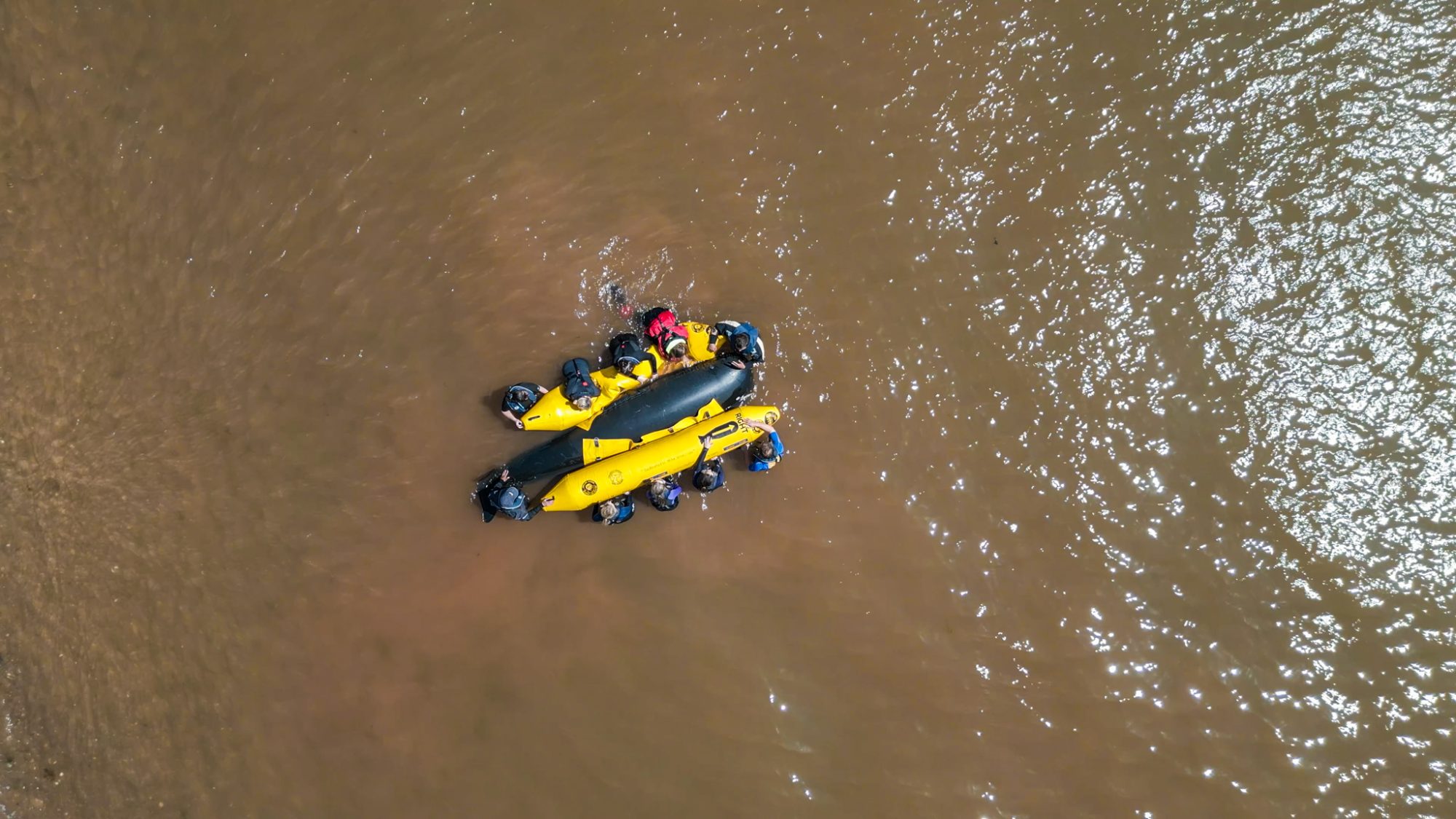The whales are coming…
…Actually they are already here. With us. On land.

When Peter Riley was 13, a young, blue-haired woman asked him to help her lift a freshly-hacked sperm whale jaw into her Volvo 245.
Pursuing whale remains across the UK, author Peter Riley unravels what these magical creatures might be revealing about who we are, what we’ve become and where we might be headed.
That night in Norfolk when Peter met the blue-haired woman marked the beginning of his lifelong fascination with whales. Now, as an author and a Herman Melville scholar, Peter is seeking to understand the ancient and complex relationship between humans and whales.
According to the Cetacean Strandings Investigation Programme, there are approximately 550-800 strandings of whales, dolphins and porpoises in the UK every year. Although no one is completely certain why this happens, we do know they’ve been doing it for thousands of years.
For as long as there have been stranded whales, there have been humans drawing meaning from their arrival – a warning, a symbol of hope, endings or new beginnings. So what news might they be bringing us now?
In our current state of unprecedented abundance and advancement, in our pandemic of isolation and individual “strandedness”, the whales seem to be calling us again. As Peter speaks with cetacean experts, chases down whale remains and witnesses a whale stranding himself, he discovers what these magical creatures might be revealing about who we are, what we’ve become and where we might be headed.
‘Strandings’ premiered on 28th April 2024 at 19:15 GMT on BBC Radio 4

About Dr Peter Riley
Peter Riley‘s research examines nineteenth- through early twentieth-century American literature in relation to labour history, poetry and poetics, and archival studies, with developing focuses on German American literature, abolitionist politics, and race and ethnicity in the United States. He also writes non-fiction, and is interested in the relationship between creative and critical prose.
His most recent book Strandings: Confessions of a Whale Scavenger won the Ideas Prize for Non-Fiction. An experimental memoir, the book explores his involvement in one of Britain’s most bizarre subcultures: each time a whale washes up on our shores, a fugitive community of human scavengers descends to claim its trophies. Some are driven by magical beliefs; some are motivated by profit. For others, the need is much stranger.

Mixing natural history, conspiracy theory, politics, and gore, Strandings was described by Iain Sinclair as “a brave, reckless and engaging performance”, and by Jean Sprackland as a “glorious rollercoaster of a book, whose twists and turns take us again and again to the dissolving edges between reality and mirage.” The book was recently featured as the cover story of the Financial Times Weekend Magazine, and adapted by us for BBC Radio 4.
Peter has made significant contributions to the study of Walt Whitman through his academic work and editorial projects. As a Senior Lecturer at the University of Exeter, his research delves into the complexities of poetic vocation and labor, with a particular focus on Whitman and his contemporaries.
In 2019, he authored Against Vocation: Whitman, Melville, Crane, and the Labours of American Poetry, published by Oxford University Press. This scholarly work examines the intricate relationship between poets’ literary pursuits and their occupational endeavors. He challenges the romanticised notion of the poet’s vocation by exploring how figures like Whitman balanced their artistic aspirations with the demands of their day jobs. For instance, Whitman’s experience as a house painter in Brooklyn is highlighted, where he famously drafted poetry on the back of wallpaper samples. This anecdote serves as a metaphor for the intersection of art and labor, illustrating how Whitman’s manual work influenced his poetic creations.
Furthering his engagement with Whitman’s oeuvre, Riley edited a new edition of Leaves of Grass for the Oxford World’s Classics series, released in December 2024. This edition offers a fresh perspective on Whitman’s seminal work by presenting the poems in their original chronological order. His editorial approach emphasises Whitman’s ongoing process of revision and renewal, reflecting the poet’s responses to the tumultuous events of his time, including the American Civil War and its aftermath. By showcasing the evolution of Whitman’s poetry, this edition provides readers with insights into the dynamic nature of his artistic vision.
Beyond his written work, Peter has actively contributed to the Whitman scholarly community. He organised the International Walt Whitman Week in 2016 and has served as faculty for the event on multiple occasions. His involvement in these gatherings underscores his commitment to fostering a deeper understanding of Whitman’s legacy among scholars and enthusiasts alike.
Peter Riley’s scholarly endeavours offer profound insights into Walt Whitman’s life and work. Through his critical analyses, editorial projects, and active participation in academic communities, Riley illuminates the multifaceted relationship between Whitman’s poetic genius and his lived experiences, enriching contemporary appreciation of this iconic American poet.
Original Music by Pat Moran
Pat is a composer/multi-instrumentalist/music director/educator. Originally from the United States, in 2015 he moved to Bristol in the UK. His primary instruments are guitars and basses but he also regularly plays mandolin, keyboards, trombone, banjo, drums/percussion and occasionally cornet. To hear more of Pat’s music head to www.patmoran.co.uk
